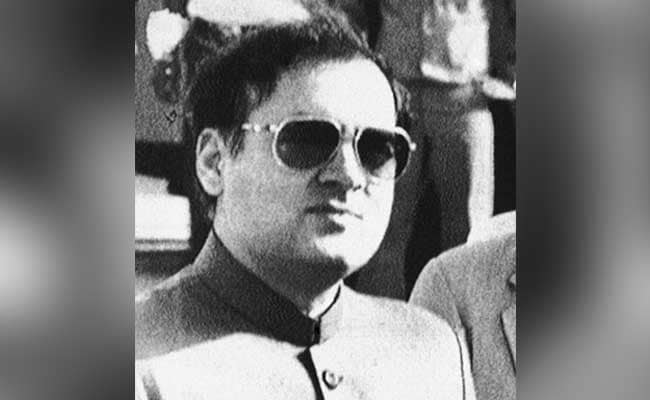
Sweden stopped inquiry into Bofors scandal to protect Rajiv Gandhi, says CIA report
New Delhi:
Sweden called off its investigation into the Bofors arms scandal to spare then Prime Minister Rajiv Gandhi embarrassment, a recently declassified CIA report has said. It also claims that Sweden's investigation into alleged bribes paid to its officials was "terminated" in 1988 following a trip by Mr Gandhi to Stockholm.
The scandal, which surfaced in the 1980s, was based on allegations that Swedish defence manufacturer Bofors paid huge kickbacks to Rajiv Gandhi and others for the sale of its artillery gun to India. In 2004, a court in Delhi said there was no evidence that Rajiv Gandhi had accepted bribes. Rajiv Gandhi was assassinated in 1991.
Referring to the "lingering" Bofors and Nobel Kemi arms scandals involving Sweden, the CIA in its secret 1988 report said Stockholm had "called off the investigation of Bofors' bribery, probably in an effort to prevent future revelations of bribes to Indian officials that could embarrass Prime Minister Gandhi."
The report is titled "Sweden's Bofors Arms Scandal".
The CIA or Central Intelligence Agency, listing the various allegations against Bofors, said the company allegedly bribed Indian middlemen and officials in connection with New Delhi's $1.5 billion purchase of 155mm Howitzers.
It said Swedish investigators conducted a national audit of Bofors' transactions with India. The audit, completed in June 1987, indicated that as much as 40 million dollars were paid in commissions to middlemen.
"Following the national audit, the Swedish police launched a separate investigation into Bofors bribery, which would have been illegal if payments were made to foreign officials. This investigation was terminated in late January 1988, following a trip by Indian Prime Minister Gandhi to Stockholm. Sweden claimed inability to track the payments through Swiss bank accounts after making a half-hearted request for Swiss assistance," the CIA documented.
The agency also noted that Bofors "almost certainly made payments - either straight to Indian officials, or to middlemen who in turn paid off officials - to secure the $1.2 billion sale of Howitzers."
"Word of the pay-offs leaked, sparking domestic difficulties for Indian Prime Minister Rajiv Gandhi. Stockholm wanted to save Gandhi the troubles caused him by the Swedish leak, and Nobel industries wanted to avoid a bribery indictment. The two sides cooperated, therefore, on a scheme to keep details of the payment secret. Stockholm eventually called off the entire bribery investigation."
The scandal, which surfaced in the 1980s, was based on allegations that Swedish defence manufacturer Bofors paid huge kickbacks to Rajiv Gandhi and others for the sale of its artillery gun to India. In 2004, a court in Delhi said there was no evidence that Rajiv Gandhi had accepted bribes. Rajiv Gandhi was assassinated in 1991.
Referring to the "lingering" Bofors and Nobel Kemi arms scandals involving Sweden, the CIA in its secret 1988 report said Stockholm had "called off the investigation of Bofors' bribery, probably in an effort to prevent future revelations of bribes to Indian officials that could embarrass Prime Minister Gandhi."
The report is titled "Sweden's Bofors Arms Scandal".
The CIA or Central Intelligence Agency, listing the various allegations against Bofors, said the company allegedly bribed Indian middlemen and officials in connection with New Delhi's $1.5 billion purchase of 155mm Howitzers.
It said Swedish investigators conducted a national audit of Bofors' transactions with India. The audit, completed in June 1987, indicated that as much as 40 million dollars were paid in commissions to middlemen.
"Following the national audit, the Swedish police launched a separate investigation into Bofors bribery, which would have been illegal if payments were made to foreign officials. This investigation was terminated in late January 1988, following a trip by Indian Prime Minister Gandhi to Stockholm. Sweden claimed inability to track the payments through Swiss bank accounts after making a half-hearted request for Swiss assistance," the CIA documented.
The agency also noted that Bofors "almost certainly made payments - either straight to Indian officials, or to middlemen who in turn paid off officials - to secure the $1.2 billion sale of Howitzers."
"Word of the pay-offs leaked, sparking domestic difficulties for Indian Prime Minister Rajiv Gandhi. Stockholm wanted to save Gandhi the troubles caused him by the Swedish leak, and Nobel industries wanted to avoid a bribery indictment. The two sides cooperated, therefore, on a scheme to keep details of the payment secret. Stockholm eventually called off the entire bribery investigation."
Track Latest News Live on NDTV.com and get news updates from India and around the world

